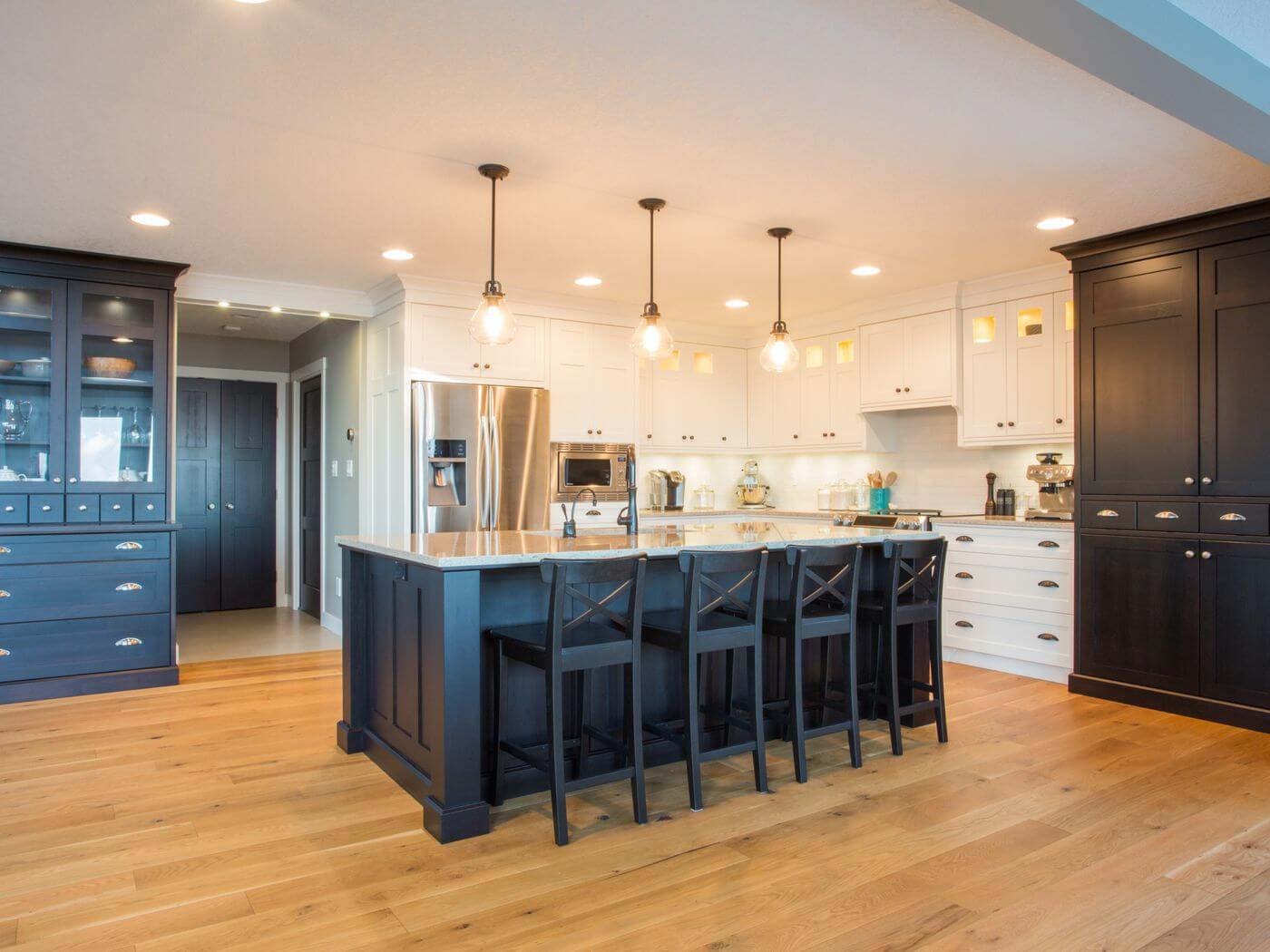What is the most durable solution for a kitchen floor?

What should I look out for when choosing a kitchen floor?
Before you get carried away by the beauty of kitchen floors, you should ask yourself a few questions to help you make the best choice.
– Area (how many square meters do you need?)
– Cleaning
– Safety (anti-slip floor treatments)
– Resistance (floor that can withstand the knocks of everything that can be dropped in the kitchen, whether it does not absorb liquids, whether it is not scratched, whether stains do not remain marked, etc. )
– Style
What are the best flooring solutions for your kitchen ?
– Hardwood
– Ceramic
– Concrete
– Vinyl
– Stone
Choosing Your Perfect Kitchen Floor Solution
Whether you’re building a brand new kitchen from the ground up, or indulging in a complete kitchen renovation, decisions regarding your kitchen floor are crucial to make early on. But with such a wide range of possibilities out there, it’s easy to become somewhat overwhelmed! Before you throw in the towel and choose the nicest-looking floor solution, this article aims to help you dial in on what exactly you need from your kitchen floor.
There are several important considerations for you to make before going all in on a kitchen floor. These considerations may be affected by your budget, the amount of use your kitchen sees, the limitations of certain floor materials, or even the décor of your home.
Floor Space
Firstly, what is the area of your floor-space? If you have a particularly large kitchen, hardwood or natural stone flooring solutions might be prohibitively expensive, and also particularly difficult to clean. Larger kitchens might benefit from a cheaper PVC floor – a material that has come a long way in recent years with regard to finish quality and can provide an elegant, hygienic solution (even if just to save on time spent mopping!). Not only is it inexpensive, but ease of installation will save you in man-hours too.
Safety and Durability
If your kitchen is for a large or growing family, safety might be at the top of your priority list. Laminate or cheaper tiled floors might provide slip hazards for younger members of the family especially after cleaning, or perhaps even damage easily from all-too-common clumsy household accidents. Here, natural stone or a hardy concrete floor with anti-slip treatment might suit best – though stains might be harder to remove in the long-term.
Style and Decor
Last, but certainly not least, you might want to incorporate your home’s overall style into your kitchen flooring decision. Hardwood is an excellent choice for rustic cottage-style homes, while ceramic tiling lends itself to mid-century modern styles. The cost of procurement and installation can be fairly high, but the results are definitely worth it. If your budget is a little smaller, or your home is an eclectic collage of styles, a versatile solution could well be concrete. The material is relatively cheap, installation is swift, and with various kinds of hard-wearing floor paint available, you can style your floor to suit the aesthetic of your choice.
In Conclusion
These are just a few simple tips to help you decide how best to finish your dream kitchen. There are hundreds of possibilities out there with regard to materials, designs and ideas, and many different considerations you can make for the longevity of your floor. Ultimately, the decision has to be yours to make – but hopefully this piece has helped you refine your vision that little bit further.





